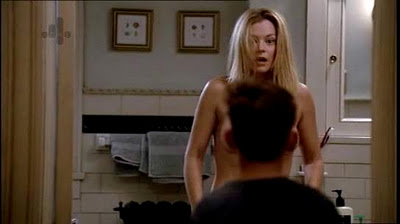“The way that this policy seems to work,” she said, “it’s like nobody can use dirty words or nudity except for Steven Spielberg.” – Supreme Court Justice Elena Kagan
Justice Kagan sums up the issues surrounding the FCC’s regulation of broadcast decency perfectly with this quote. The Supreme Court heard arguments on Tuesday on whether the FCC has the right to regulate nudity and language on broadcast stations.
 The problem at Kagan alludes to here is that broadcasters have a hard time coming to terms with what they can or can’t broadcast. For example, network television has shown the Spielberg World War II movies Schindler’s List and Saving Private Ryan complete and uncut. The first has full-frontal nudity of concentration camp victims heading to the gas chambers and the second had graphic war violence and soldiers using extreme profanity. But then there was the edgy police series NYPD Blues that routinely showed the naked backside of characters. But in 2003, actress Charlotte Ross showed her naked backside for 7 seconds, and the FCC proposed fines of nearly $1.4 million for stations in Central and Mountain time zones that showed the program at 9 p.m. (Eastern and Western time zone stations played the show at 10 p.m. which supposedly made it all OK.)
The problem at Kagan alludes to here is that broadcasters have a hard time coming to terms with what they can or can’t broadcast. For example, network television has shown the Spielberg World War II movies Schindler’s List and Saving Private Ryan complete and uncut. The first has full-frontal nudity of concentration camp victims heading to the gas chambers and the second had graphic war violence and soldiers using extreme profanity. But then there was the edgy police series NYPD Blues that routinely showed the naked backside of characters. But in 2003, actress Charlotte Ross showed her naked backside for 7 seconds, and the FCC proposed fines of nearly $1.4 million for stations in Central and Mountain time zones that showed the program at 9 p.m. (Eastern and Western time zone stations played the show at 10 p.m. which supposedly made it all OK.)
But while these were broadcast without much controversy, stations across the country faced large fines for show Janet Jackson’s nipple for 9/16ths of a second during the 2004 Super Bowl. And other stations were fined for “fleeting expletives” used in live programs by celebs such as U2’s Bono and Cher. Following the fuss over Miss Jackson’s Super Bowl appearance, some stations became so worried about getting into trouble with the FCC that they refused to carry ABC’s Veteran’s Day broadcast of Saving Private Ryan. And though nobody’s really talking about it, there was no talk of fines for Dancing with the Stars when cable news host Nancy Grace briefly pulled a Janet Jackson for close to second, almost twice as long as the Janet Jackson flash.)
During the arguments, one lawyer pointed to statues at the court that had exposed buttocks. But the central argument against the FCC rules was that they seem to be applied arbitrarily and that the rules made little sense in an age where cable channels and Web based video could contain nudity and explicit language without sanctions.
The government argued that the FCC had a right to regulate broadcasters because the networks make use of public airwaves, and that parents have a right to know that there is a time of day when children can safely watch broadcast television.

Pingback: Link Ch. 13 – Supreme Court rules that FCC fines for language, nudity were given without proper notice | Living in a Media World